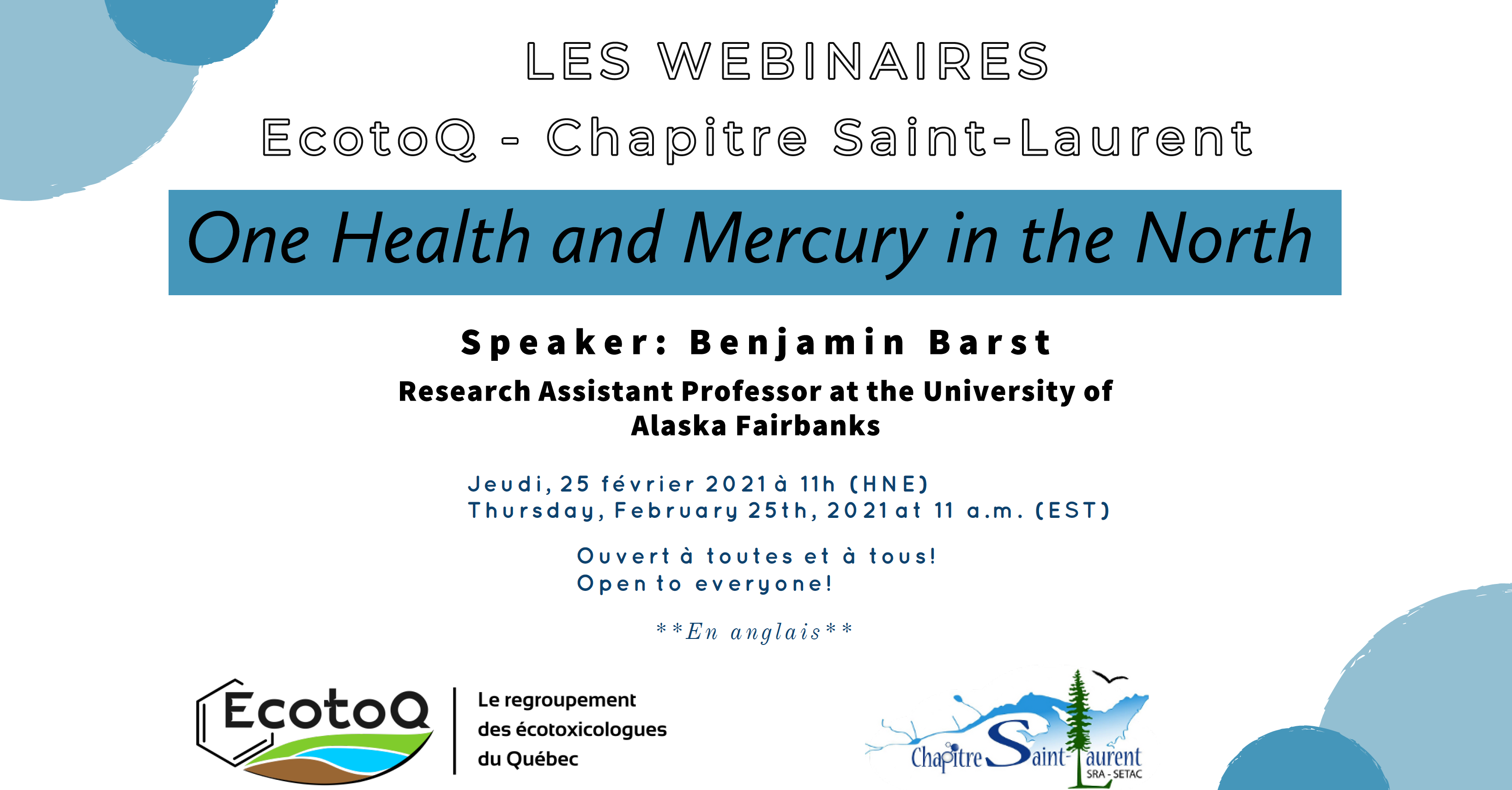
Publiée le 18 février 2021
Speaker:
Benjamin Barst is a Research Assistant Professor in the Water and Environmental Research Center at the University of Alaska Fairbanks and is also affiliated with the Alaska Stable Isotope Facility. He completed his PhD at INRS-ETE and postdoctoral fellowships at McGill University and the University of Alaska Fairbanks. Dr. Barst is interested in the movement of environmental contaminants, their variations in time and space, their effects on fish and wildlife, and how wildlife and human exposures are influenced by diet and non-chemical threats, such as invasive species and climate change. He takes a One Health research approach to study contamination of northern aquatic ecosystems.

Summary
A One Health paradigm, which recognizes the interconnectedness of animal, human, and environmental health, is a relevant approach for tackling the complex issues associated with environmental mercury contamination of northern ecosystems. This presentation will first focus on the exposure pathways and effects of mercury on populations of Arctic char in the Canadian High Arctic through the application of novel sampling and stable isotopic techniques. The presentation will then discuss how these approaches can be applied to other fish and wildlife, as well as humans.
Rejoignez le webinaire à partir d’un PC ou d’un Mac, ou d’un système Linux, iOS ou Android :
https://INRS.zoom.us/j/84692047704
Ou par téléphone :
Canada : +1 647 558 0588
ID de réunion : 846 9204 7704
Les webinaires EcotoQ – CSL : une série de séminaires ouverts à toutes et tous, organisée par EcotoQ et le Chapitre Saint-Laurent! Les présentations d’une durée de 35 min environ suivies d’une période de questions sont offertes par les membres d’EcotoQ et du CSL et par des conférenciers invités. Cette série offre un webinaire toutes les deux semaines à 11h (heure du Québec), en alternance les mardis et les jeudis. Retrouvez les webinaires précédents sur notre chaîne YouTube!
